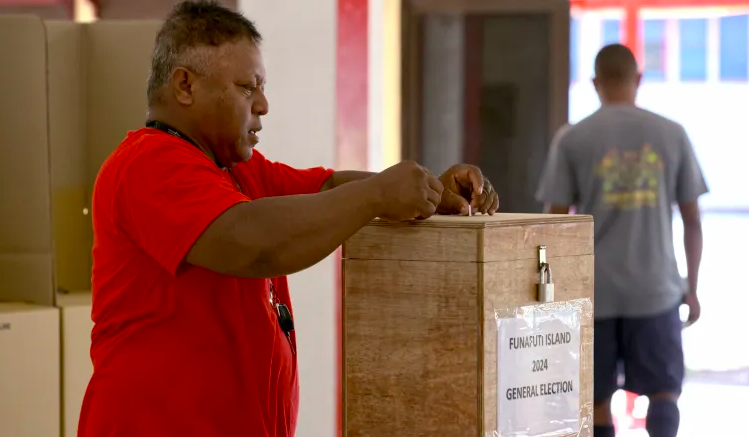Poll in nation threatened by climate change closely watched as China and the United State vie for influence in region.
Tuvalu, the tiny Pacific island nation with just over 6,000 registered voters, has recently conducted a national election that has drawn significant attention from global players such as China, Taiwan, the United States, and Australia. The election results are anticipated later in the day. With a population of about 11,200 people spread across nine islands, Tuvalu has been a vocal advocate for climate change action at international conferences, particularly as its capital, Funafuti, faces the risk of inundation by tides by 2050.
The strategic significance of Tuvalu has sparked a competition for influence in the Pacific region between China and the US. Washington has recently pledged to connect Tuvalu’s remote population to global telecommunications through an undersea cable, signaling efforts to strengthen ties. Taiwan, one of three remaining Pacific allies, has faced diplomatic challenges as Nauru severed ties with Taipei, resuming relations with China, which promised increased development support.
China’s influence in the Tuvalu election has drawn concerns, with Taiwan accusing China of attempting to sway the outcome and “seize diplomatic allies.” China considers Taiwan as its territory and rejects its diplomatic ties, while Taiwan rejects China’s sovereignty claim. The contenders in Tuvalu’s leadership, united in advocating for global climate change action, differ in their approaches to ties with Taiwan, a diplomatic ally since 1979.
Seve Paeniu, Tuvalu’s Finance Minister and a newly elected parliament member, expects a review of ties with Taiwan post-election. The government, under new leadership, will decide whether Taiwan or China better addresses Tuvalu’s development needs. Prime Minister Kausea Natano has expressed continued support for Taiwan, while former Prime Minister Enele Sopoaga, overthrown in 2019, and former Foreign Minister Simon Kofe have previously pledged allegiance to Taiwan.
The election process in Tuvalu involves voters choosing two lawmakers for each of the eight island electorates, with no political parties. After counting the votes, newly elected lawmakers are transported from the islands to Funafuti, a journey that can take up to 27 hours. The prime minister is then chosen by the elected lawmakers. The election also brings attention to the differing stances on a security and migration agreement signed with Australia in November, with Sopoaga rejecting the deal and Kofe suggesting revisions to certain aspects.

